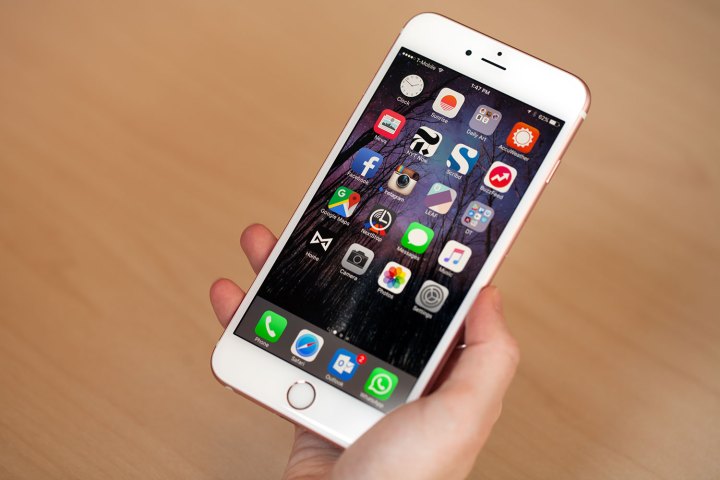
It’s not a case of Apple being deliberately unhelpful. Apple says the task “would be impossible to perform,” due to the new security and privacy features embedded in iOS 8 and iOS 9. The brief states these measures “prevent anyone without the device’s passcode from accessing the device’s encrypted data. This includes Apple.” The lawyers who penned the brief make it very clear it’s concerned that if forced to break into the iPhone, there’s a risk of its brand being damaged, and customers losing trust.
The encryption standards introduced in iOS 8 and continued in iOS 9 mean Apple can’t access 90-percent of iPhone models in the world, a figure it says covers all the phones running the most recent versions of the mobile OS. That leaves 10-percent still operating on iOS 7 or earlier, which coincidentally, includes the phone in the Justice Department’s possession.
This is where we get to the heart of the problem, and the reason for all the noise. Apple is again shouting about its inability to bust into iOS 8 and iOS 9 devices, because it may end up having to assist the Justice Department in this situation; simply because it can. It has told Orenstein to consider the “broader legal issues at hand,” before making a decision, and he has deferred until October 22, telling Apple that it needs to show any order would be “unduly burdensome,” if he’s to come down on its side.
It’s also a clear message to anyone using an iPhone — upgrade to the latest OS if you want Apple on your side, something the company has been essentially saying since the introduction of iOS 8, when its law-enforcement-baiting, hard line approach to data privacy began in earnest.
Editors' Recommendations
- Nomad’s new iPhone case and Apple Watch band may be its coolest yet
- Everything Apple says is wrong about the DOJ’s iPhone lawsuit
- We now know when Apple is adding RCS to the iPhone
- Your iPhone just got a new iOS update, and you should download it right now
- The DOJ has sued Apple over the iPhone. Here’s what it means for you




